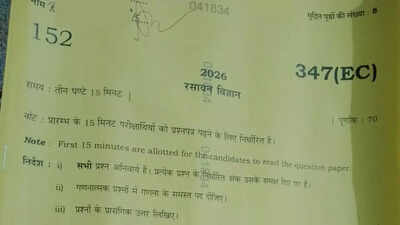Stanford University has confirmed that standardised test scores will once again be a mandatory part of its undergraduate admissions process, beginning with the Fall 2026 application cycle. The move, which reverses a pandemic-era test-optional policy introduced in 2021, means applicants must now submit either Scholastic Assessment Test (SAT) or American College Testing (ACT) scores for their applications to be considered complete.The university’s updated admissions criteria, published this week, also state that legacy status will continue to be considered in the selection process, even as California moves to restrict the practice in institutions that accept public funds. The dual announcements are reshaping how students, especially those applying from California, may approach one of the country’s most competitive university admissions processes.
SAT, ACT scores now required again
Stanford’s shift back to requiring test scores follows a faculty-led review which found a meaningful correlation between standardised test performance and academic outcomes at the university. In an earlier statement, the university clarified that test scores are viewed as only one element in its holistic admissions process, and that there is no defined minimum Grade Point Average (GPA) or test score for applicants.“Academic potential remains the primary lens through which applications are evaluated,” the university wrote in a previous public update, according to The Stanford Daily. It added that standardised test scores can serve as a useful signal of preparedness when reviewed alongside school grades, course rigor, recommendation letters, and personal essays.According to The Stanford Daily, Brad Howard, associate vice president for University communications, noted in an email that the decision was timed to allow prospective students sufficient time to prepare. For current high school students planning to apply in the upcoming cycle, this reinstated requirement may affect how they prioritise test prep and application timelines in the coming months.
What this means for applicants
For students who began high school under a test-optional landscape, the return of SAT and ACT scores as required materials may present both a strategic and psychological shift. Applicants will now need to balance academic coursework, extracurriculars, and essays with the added pressure of standardised test preparation.Still, the university has emphasised that scores are considered in context. Students from schools with limited access to test preparation resources or those facing personal challenges during testing may use the additional components of the application to present a fuller picture of their background and potential.It is worth noting that many peer institutions, including MIT and Yale, have also recently reinstated test score requirements, citing similar research on academic performance and equity, as noted by The Stanford Daily. This suggests that standardised testing may be regaining influence in elite admissions, even as national debates about access and fairness continue.
Legacy admissions policy remains
In a separate but closely related development, Stanford also announced that it will continue considering legacy status, that is, whether an applicant has family members who attended the university, despite the passage of Assembly Bill 1780 in California. The new legislation prohibits universities that receive state-funded financial aid from giving admissions preference based on legacy or donor connections.According to The Stanford Daily, to comply with this law without changing its admissions approach, Stanford will withdraw from the Cal Grant program, a state-funded initiative that supports college costs for qualifying California residents. Instead, the university has committed to covering financial aid using its own institutional funds, ensuring that eligible students continue to receive support.For students, the return of testing makes early planning more important than ever. Whether that means registering for fall test dates, seeking out preparation resources, or understanding how your scores fit into a broader application strategy, the key is to stay informed and begin preparing early.TOI Education is on WhatsApp now. Follow us here.






